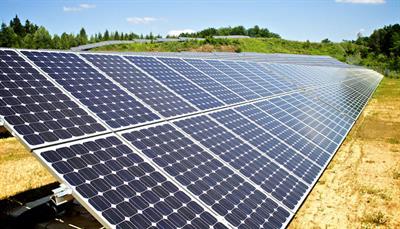PDF chapter test TRY NOW
The radiant light emitted by the Sun is known as solar energy. Solar energy is solar radiation that can generate heat, cause chemical processes or generate electricity. This energy is converted into electricity using solar cell panels.

Solar energy
It is a renewable source of energy that is not harmful to the environment.
Solar energy has grown more economical because of developments in science and technology to reduce the energy crisis. Solar power is a pollution-free source of electricity. Various types of equipment can be used to extract maximum energy with minimal effort.
Uses of solar energy or solar power:
- Solar water heaters make use of it.
- Agricultural and animal items are dried with it.
- It is employed in the generation of electric power.
- Solar greenhouses make use of this material.
- Solar distillation and solar pumping are two applications of it.
- It can also be used for solar heating and cooking.
Advantages:
- Pollution-free source of electricity.
- Renewable: As long as the Sun lasts, there will always be enough energy to go around.
- Reliable: Because the energy can be stored in the batteries, there is no risk of failure.
- Low maintenance.
- Reduce the electricity bill.
Disadvantages:
- During the winter and on cloudy days, productivity is poor.
- The original cost of the supplies, as well as the installation, are both costly.
- The panels take up more space.
Reference:
https://indiaclimatedialogue.net/wp-content/uploads/2018/12/Solar.jpg
